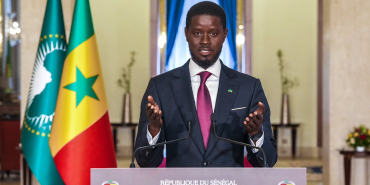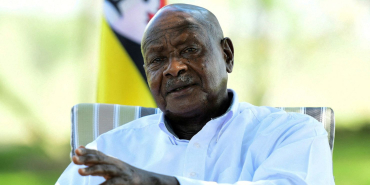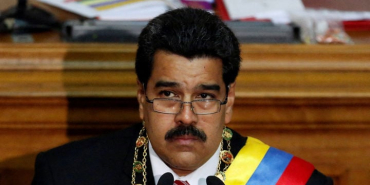How Trump's Second Term Could Affect African Nations

Donald Trump's anticipated return to the presidency in January 2025 portends substantial shifts in both domestic and international US policy.
This second Trump administration, commonly dubbed Trump 2.0, has sparked intense global discussion regarding its potential ramifications. The prospective Trump presidency has generated divergent viewpoints among international observers. While some anticipate that his leadership might facilitate resolution of conflicts in Ukraine and the Middle East, others predict significant global disruption. African nations, in particular, harbour concerns about diminished US engagement with the continent, drawing from experience during Trump's initial term. Research conducted by the University of Pretoria's African Centre for the Study of the US indicates that Trump's second term could yield complex outcomes for Africa.
His transactional approach to foreign relations, characterized by selective bilateral engagement based on US strategic priorities, might benefit certain African nations through enhanced investment and trade opportunities. However, this methodology could simultaneously undermine African agency in global affairs and compromise progress in areas such as democratic governance, regional stability, human rights protection, and climate change initiatives. Trump's America-first doctrine fundamentally subordinates international commitments to domestic interests, potentially disadvantaging African nations deemed less strategically vital to the United States.
His previous administration's preference for bilateral trade agreements over the African Growth and Opportunity Act (Agoa) exemplifies this approach. A return to such policies could fragment US-Africa trade relations and adversely affect nations currently benefiting from Agoa's duty-free market access provisions. The proposed immigration reforms under Trump 2.0 could significantly impact African migration to the United States. Despite Africa's relatively small contribution to unauthorized immigration, stricter border policies and deportation measures could disrupt the US-Africa diaspora relationship. The potential deportation of hundreds of thousands of African residents could substantially reduce remittances, which reached $13 billion in 2023.
Trump's governance style raises concerns about democratic stability in Africa. His transactional outlook contrasts sharply with President Biden's emphasis on equal partnership and African agency. The previous Trump administration's absence of a US-Africa Leaders Summit, unlike his predecessors Obama and Biden, reflects this divergence. Moreover, Trump's apparent affinity for authoritarian leadership could embolden undemocratic regimes and weaken political accountability in nations with fragile democratic institutions, particularly in countries like Burkina Faso, Guinea, Gabon, Mali, and Niger. Nevertheless, certain aspects of Trump's potential second term offer grounds for optimism.
His administration is likely to maintain engagement with Africa given the continent's growing relationships with China, Russia, and other US competitors. Counterterrorism initiatives, especially in partnership with allies like Nigeria and Kenya, might receive enhanced military support, though direct US troop deployment may remain limited. Historical trade data reveals nuanced patterns in US-African economic relations. While trade with 49 African nations declined from $104.7 billion in 2008 to $33.7 billion by 2016, Trump's initial term saw modest improvement, reaching $40.9 billion before declining to $32.7 billion during the pandemic in 2020.
As Trump prepares to assume office, his presidency presents a complex mix of opportunities and challenges for Africa. The impact on trade relations, immigration policies, democratic institutions, and human rights remains uncertain. The true implications of Trump 2.0 for the African continent will only become apparent as his administration's policies unfold in the coming years.














Add new comment